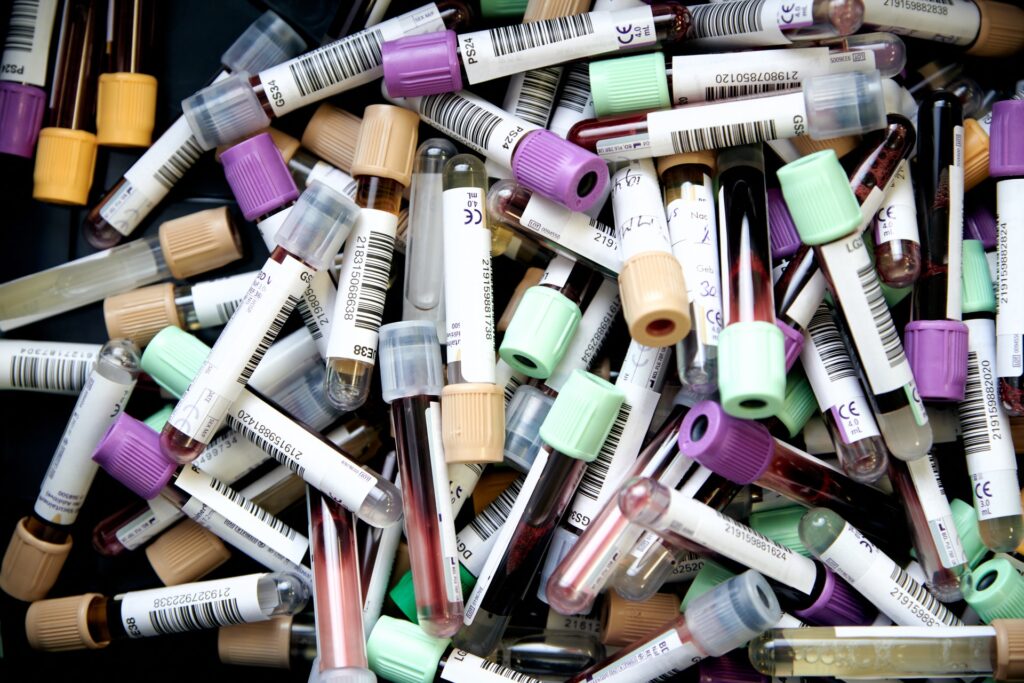What is Creatinine Level in Blood Test – Overview
A creatinine blood test is devised to measure the creatinine level in your blood. This waste product is formed when creatine, found in your muscles, begins to break down.
Creatinine levels in the blood can let doctors know the functionality of your kidneys.
What Is a Creatinine Blood Test?
Our kidneys have millions of small filtering units called nephrons. The nephrons continuously filter blood and remove impurities and toxins by passing it through glomeruli.
These are clusters of tiny blood vessels that filter excess water, waste products, and other irregularities from the blood.
The nephrons filter waste products like creatinine from the blood into the urine, then store it in the bladder until it is expelled from the body.
Creatinine is a waste product that your kidneys filter out of your blood and excrete in urine.
Doctors can measure the creatinine level in your body to determine kidney functions. High levels of creatinine can be a sign of damage to the kidney or a kidney malfunction.
A creatinine blood test is often part of a basic metabolic panel (BMP), which includes a blood urea nitrogen (BUN) test, among other tests, to assess kidney function.
These tests are normally performed during a routine physical exam and help diagnose certain diseases. These tests are also helpful in detecting several types of problems with kidney functions.
Why is a Creatinine Blood Test recommended?

Doctors may order you to undergo a creatinine blood test to measure the level of creatinine in the body and search for signs of kidney malfunctions. These symptoms may prompt a doctor to order a creatinine blood test to evaluate kidney function:
- Loss of appetite
- Trouble sleeping
- Fatigue
- High blood pressure
- Nausea
- Lower back pain near the kidneys
- Swelling in the face, ankles, wrists or abdomen
- Changes in urine frequency and output
- Vomiting
Different diseases and disorders can also affect kidney functions, such as:
- Pyelonephritis – Bacterial infection of kidneys
- Glomerulonephritis – Inflammation of glomeruli due to damage
- Blockage of the urinary tract – caused by kidney stones
- Dead kidney cells from drug abuse
- Decreased blood flow to the kidney from diabetes, congestive heart failure or dehydration
Certain medications, such as gentamicin, are known nephrotoxins that can cause kidney damage, which may lead to an increase in blood creatinine levels. So, if you are taking this medication, then your doctor may recommend undergoing a creatinine blood test from time to time to determine its level in your bloodstream.
How can I prepare for the Creatinine Blood Test
Generally, no special preparation is required for a creatinine blood test, including fasting; however, your doctor may provide specific instructions based on your health and any other tests being conducted. You should eat and normally drink as you do to get an accurate result.
However, you should also remember to inform your doctor about any over-the-counter medications or prescription drugs you are currently taking.
Some medications and supplements may affect creatinine levels, potentially leading to inaccurately high readings independent of kidney function. It’s important to inform your doctor about all your medications and supplements before the test.
How is a Creatinine Blood Test Performed
The creatinine blood test is a simple blood test that requires the lab technician to remove a small sample of your blood.
The lab technician will normally procure the blood sample from your arm, possibly from a vein near the elbow. Once the technician has removed sufficient blood samples, they will cover the needle puncture with a bandage.
Although creatinine blood tests do not have any major risks, there are small complications that some may experience. These include:
- Dizziness or vertigo
- Pain
- Bruising
- Infection
- Soreness/redness at the puncture site
- Fainting at the sight of blood
Once your blood sample is drawn, it is sent to a laboratory for analysis. The test results will arrive in a few days.
What do Creatinine Levels in the blood mean?
Creatinine levels in the blood are milligrams per deciliter (mg/dL). Due to increased creatinine production, individuals with greater muscle mass may have higher baseline creatinine levels. Your age and gender may also influence the test results.
Generally, normal creatinine levels range from 0.9 to 1.3 mg/dL in men and 0.6 to 1.1 mg/dL in women between 18 and 60. Normal creatinine levels may vary with age, and older adults may have slightly lower levels due to decreased muscle mass.
If high serum creatinine levels are found in the blood, it usually indicates that the kidney is not functioning normally.
There are other causes of high serum creatinine levels in the body, too, such as kidney problems, a high-protein diet, and reduced blood flow to the kidneys.
Conclusion
If the creatinine level in your blood is abnormally elevated and caused by a chronic or acute renal injury, it will not lower until the root cause is remedied.
If other conditions cause elevated creatinine levels in the bloodstream, these conditions need to be treated to normalize the creatinine levels.
See Also
Medical Laboratory Technician Scholarships
Cross Cultural Communication Training for Physicians
Best Medical Terminology Books